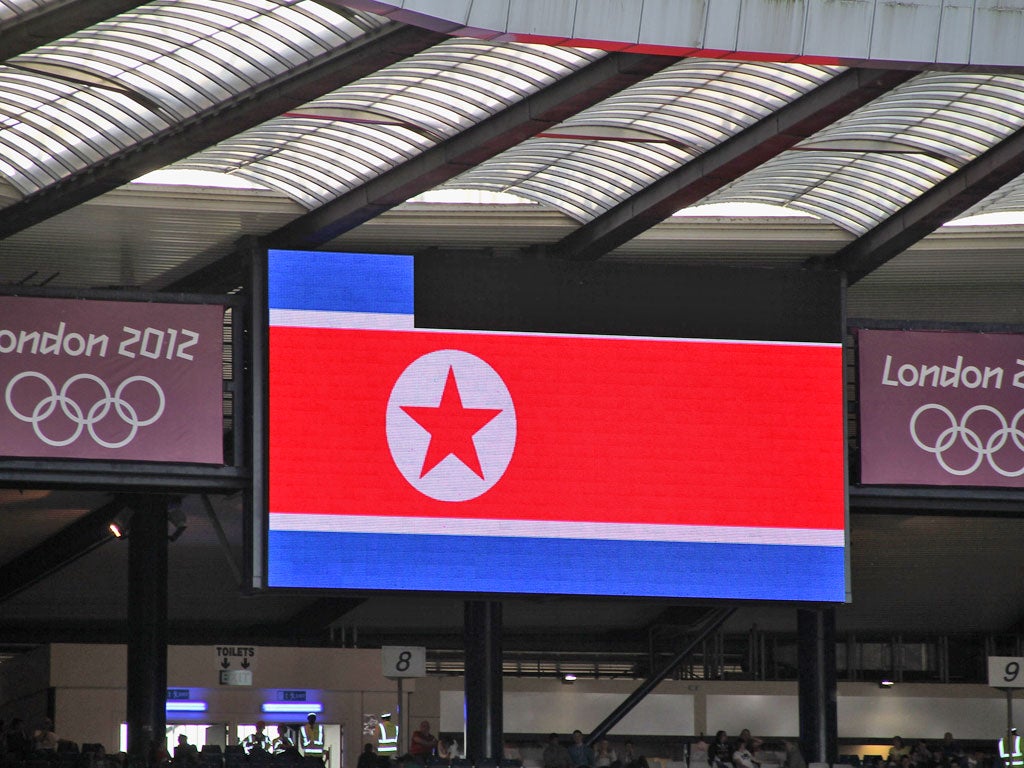North Korea - the totalitarian state accused of putting disabled people in labour camps - makes Paralympic debut

Your support helps us to tell the story
From reproductive rights to climate change to Big Tech, The Independent is on the ground when the story is developing. Whether it's investigating the financials of Elon Musk's pro-Trump PAC or producing our latest documentary, 'The A Word', which shines a light on the American women fighting for reproductive rights, we know how important it is to parse out the facts from the messaging.
At such a critical moment in US history, we need reporters on the ground. Your donation allows us to keep sending journalists to speak to both sides of the story.
The Independent is trusted by Americans across the entire political spectrum. And unlike many other quality news outlets, we choose not to lock Americans out of our reporting and analysis with paywalls. We believe quality journalism should be available to everyone, paid for by those who can afford it.
Your support makes all the difference.He may be his country's only Paralympian and he may have come dead last in his event but Rim Ju-Song is still a hero.
Today he became the first athlete to compete in the Paralympics on behalf of North Korea – the insular totalitarian state that human rights groups have often accused of hiding away its disabled population in labour camps.
Rim was swimming in the S6 50m freestyle at the aquatics centre this morning, the first time the flag of the Democratic Peoples' Republic of North Korea has been seen at the Games. He finished dead last, a good ten seconds behind the rest of the pack but he made history with every stroke. When he left the pool he did so with a huge smile on his face.
The decision by North Korea – a country which takes the Olympic Games extremely seriously – to allow Rim to take part could signal a shift in how the state goes about treating disabled people.
Rim is insistent that he will be back for Rio in 2016. “I'm very honoured to be the first Paralympian,” he said. “I'm encouraged that many people cheered for me today. I want to be the gold medallist in the next Paralympic Games in Rio (2016)."
According to Rim's doctor Sung Chal-Kim, the 17-year-old swimmer lost his legs as a child in an accident on a building site.
"He was a naughty boy when he was small,” Sung said. “At the age of 6 he was playing in a construction area."
Sung is one of 17 DPRK officials who have accompanied their lone athlete for this summer's games and today he signalled North Korea's intention to field many more athletes come Rio.
"We are preparing athletes for table tennis, powerlifting, boccia, wheelchair racing and swimming, but unfortunately we have had some time constraints,” he said “That's why we only have one swimmer participating (at the London 2012 Paralympic Games). They are all preparing though and observing here.”
Rim was only able to compete after the British embassy in Pyongyang helped find funding for him to make the Games.
Sung, meanwhile, rejected the allegations that disabled people in North Korea are often hidden away in labour camps.
“There is a certain number of people with a disability,” he said. “It is quite a normal thing. I don't think it's true (the camps). I saw some media saying that, but I don't think it's true. People normally live in the villages and in the towns. Of course they participate in sport and art, it is quite normal in my country."
At the Stadium, meanwhile, a powerful symbol of reconciliation took part in the javelin throw. Kovan Hassan, 24, was the first Kurdish athlete to take part in the Paralympics on behalf of Iraq.
During the rule of Saddam Hussein, Iraq's Kurdish population was heavily suppressed.
Speaking from the Olympic village, Hassan said, “Everyone is waiting for my success, but especially the disabled at home who support me the most and want me to come back with a medal.”
Professional sport, Hassan added, has come a long way since the days of Saddam. “Athletes were beaten and then expelled from the team for not being good enough,” he said. “A medal was considered the minimum, and those who failed to achieve this were penalised heavily.”
Join our commenting forum
Join thought-provoking conversations, follow other Independent readers and see their replies
Comments